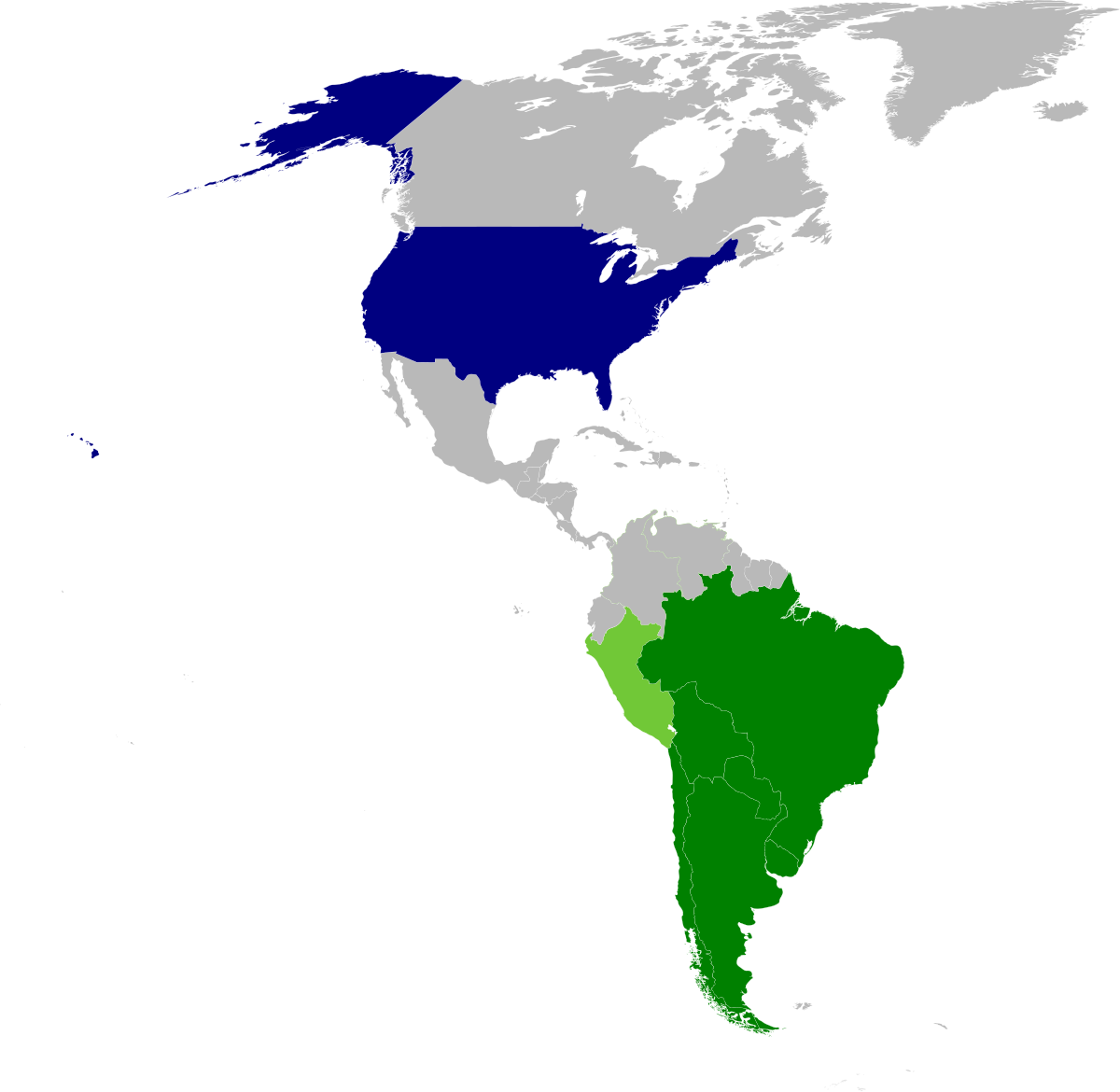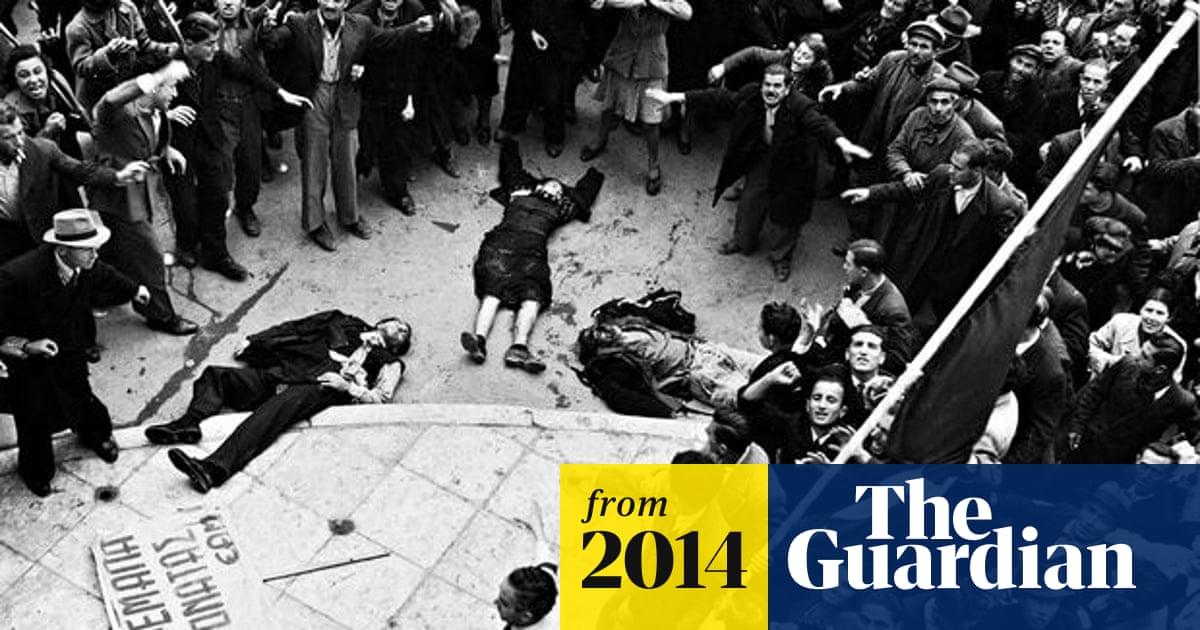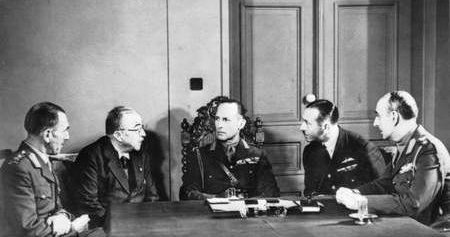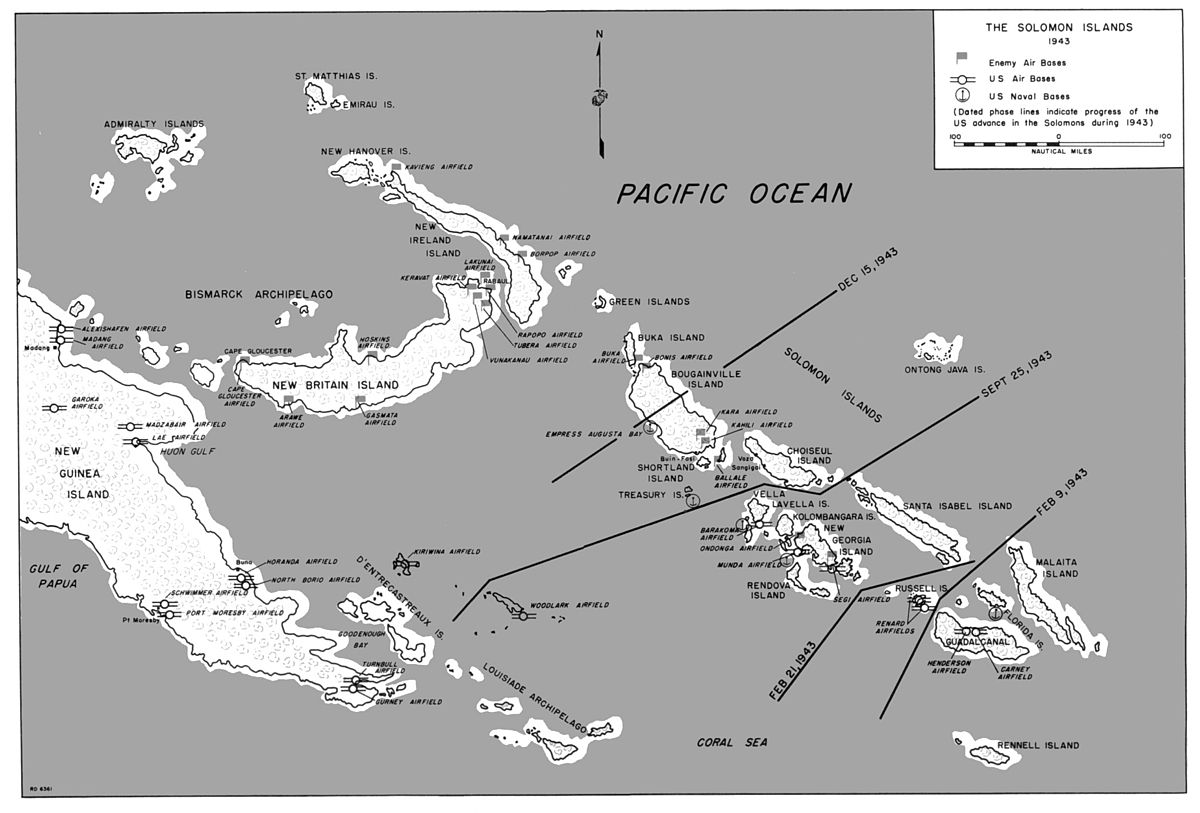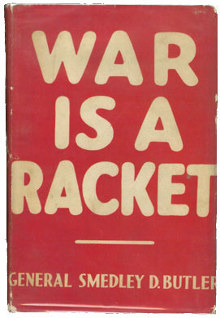sillygoose
Right can't be sure I have everything as it was a week or so back but try and reply.
Then why did Hitler decide on war with the US? That's one point that undermines your argument.
Also I disagree about the basic idea of fascist Germany as basically operating on the same paths as most other nations. They had taken social darwinism 'ideas' to an extreme and had no more concept of other powers being their equal and having a right to exist than the current empire in China for instance.
The difference is that in an autocratic state, let alone a totalitarian one its a lot more difficult, let alone dangerous, to try and talk the ruler out of a bloody stupid idea. Germany was damned lucky in 1938 and again in 39/40 and similarly in 1941 that Stalin was as rash and irresponsible as Hitler else the Germans would have faced serious problems even sooner. The allies didn't go for something as mind-blowing stupid as Operation Sledgehammer for instance.
I think we're at cross purposes here as what you say is something I totally agree with so I think we were discussion something else.
I wasn't referring to that at all. IIRC I was thinking about things such as attacks on coastal shipping and interests. Possibly also trying to displace US economic interests in Latin America.
There has always been a anti-British element in the US, in part because of the latter's foundation myth and in part because Britain as long as it was the primary naval power was on the only capable of posing a threat to the US itself, at least before the mid-1950s'. That Britain was also the 1st line of defence for the US for most of its history tends to get ignored when stirring up xenophobia. That's one reason why many of the US politicians who were trying to cosy up to Statlin were also talking about the need to break British power despite the fact that had already happened.
Towards the end of WWII just about everybody had a few dirty secrets but I don't think that preserving democracy in Greece was one of them. The US was at least as guilty and in many other areas.
Quite possibly but then de Valera was famously an evil little thug who hated anything outside his power. He brought several generations of suffering on the Irish republic which its only finally escaped from in the last couple of decades. I frankly would trust him further than I could throw him.
Interesting admission that the US left important enemy capacity off their target lists and some what horrifying. Of course its doubtful they could have hit those targets reliably if they had tried.
No but its a massive boost in allied power. There is a risk of interception of a nuclear delivery but there's also a considerable risk for Germany that it will get through and a few would cause huge damage to the German economy. As I said I hadn't mentioned it earlier because its future was uncertain in ~1943 but it is a factor that would come into play in a longer war.
You could be correct that minor levels of rationing is considered more important to many than securing the countries security but that would be a very myopic viewpoint.
In some ways Germany in 43 is stronger than in 1918 but it also has considerable weaknesses.
IIRC we're talking about defending the Caucaus line and preventing the Germans, with very long supply lines reaching around two side of the Black Sea and through hostile country towards a formidable line of mountains. As such the British forces that could be deployed along with increasing numbers of US ones if their not left idle in Britain should be able to do that fairly easily. Coupled with clearing N Africa pretty much as OTL or ideally a bit quicker and Germany has relatively little chance to change the borders.
Yes looks like I lost my train of thought somewhere. However I stand by my point that panzers were a small - albeit important - element in the German army. It shouldn't be compared to an entire branch of the military.
It wasn't "properly applied" because it didn't have the necessary mass, in part because so much was repeatedly squandered, and because the relevant technology and organisation wasn't there. Both the UK and US startegic bomber plans were driven more by service interests than actual logic and forethought.
A major challenge is a traditional way of making people re-think how their doing things and that's exactly what is being proposed here. With the Soviets [or their successors] being reduced to a 2nd level power the allies have to rethink what their doing. Give up is one option I'll admit but I think its a bloody stupid one. If the allies decide we must fight to win - or even to avoid a disastrous defeat until we can find better ways of winning - then there's a lot they can do and a bloody big incentive to make changes.
Your argued that the Germans would massively boost their own performance and [below] that they actually did so. However you assume that the allies can't do likewise.
On HL we will have to differ. I have repeatably pointed out flaws in his arguments, some of them very obvious and he continues to ignore those flaws.
I have to disagree given the German attitude to the people in question. Not to mention the stated German intention of killing the majority of those people. Surrenders, desertions and willing collaboration dwindled largely because the people in the occupied territories found out that for once Soviet propaganda had some accuracy to it. I.e. that the Germans were that brutal and murderous. Soviet terror also played a part, especially from Kursk onward when it looked increasingly likely that the Soviets would win but the primary factor was the German attitude to the local population.
Germany was a lot more prepared than just about anyone else. It made progress in the following years but not as much as other powers that were playing catch up.
With Tooze I have read him recently because I have frequently seen him quoted to argue points that I disagree with. On reading him I find those references have often been a distortion of what he actually said. I also rely on a lot more reading from multiple sources over several decades. I also notice that both HL and your yourself earlier today pick items from his books to argue your case. Therefore I wonder who is actually applying bias confirmation?
Yes I know that and have answered this point before. If we deploy people differently then finding the manpower is possible. Shipping is more of an issue but accepting this and prioritizing it would ease a lot of those problems.
I'm not actually suggested cutting any L-L at all, other than routes that would be cut off by the proposed German advances. As I've pointed out the Russian population and resource base won't disappear totally although at worse case scenario, which is being suggested here its going to be a substantial regional force as well as the German need to garrison the vast empire being created.
Interesting ratios of tooth to tail. Do you think the Germans, with supply lines stretching so long aren't going to have problems as well?
Right can't be sure I have everything as it was a week or so back but try and reply.
Ok, I'll have to reply in shifts because you wrote a lot and I don't have the time/patience to try and do even all of this post in one sitting.
Even with said potential Hitler and the Nazi leadership really didn't want to fight the US. This is quite well documented. They wanted to dominate Europe and have a trade bloc from which they could economically compete with the US, since they would have more than enough to occupy them in their backyard; "Man In The High Castle" is not great alternate history.
Then why did Hitler decide on war with the US? That's one point that undermines your argument.
Also I disagree about the basic idea of fascist Germany as basically operating on the same paths as most other nations. They had taken social darwinism 'ideas' to an extreme and had no more concept of other powers being their equal and having a right to exist than the current empire in China for instance.
During wartime when the situation was fluid war planning did at times exist like that, but in the pre-war period there were war plans based on likely war scenarios, which like the Color War Plans of the US are well documented and did not necessarily stem from Hitler ordering them. Planning was done in OKH independent of Hitler's whims especially pre-1942, OKW is where Hitler had his way since they were his personal staff after he took over War Minister duties for himself. Even though technically head of OKH after 1941 the CoS of that organization generally operated with substantial independence in the realms where they had domain, like the Eastern Front. I'd imagine in peace time Hitler, assuming he was still in charge and healthy, they revert to a more theoretical series of contingency planning.
Of course you do also have to realize that what you describe is also how things worked for the Allies; the politicians in charge set directives based upon their Grand Strategy and had their staffs carry out planning; certainly said staffs have serious input, but then so did they often in Hitler's planning, like at Kursk as one example.
The difference is that in an autocratic state, let alone a totalitarian one its a lot more difficult, let alone dangerous, to try and talk the ruler out of a bloody stupid idea. Germany was damned lucky in 1938 and again in 39/40 and similarly in 1941 that Stalin was as rash and irresponsible as Hitler else the Germans would have faced serious problems even sooner. The allies didn't go for something as mind-blowing stupid as Operation Sledgehammer for instance.
I mean the shipping they hit was even indirectly servicing British war potential; every ship knocked out from east coast US shipping is one that would have to be replaced, so the resources to make it couldn't be used on a ship for Britain or to ship goods to Britain, while the loss of said ship cut resources that could be moved around for US production, which was servicing the British.
I think we're at cross purposes here as what you say is something I totally agree with so I think we were discussion something else.
What do you mean about medium term potential options to threaten the US? Their sabotage mission failed badly:
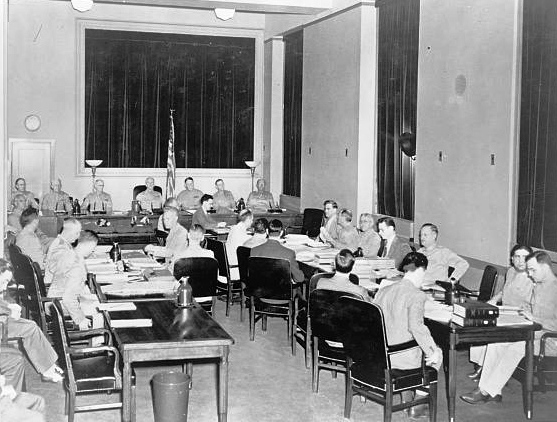
Operation Pastorius - Wikipedia
en.wikipedia.org
I wasn't referring to that at all. IIRC I was thinking about things such as attacks on coastal shipping and interests. Possibly also trying to displace US economic interests in Latin America.
Yep:
Anti-British sentiment - Wikipedia
en.wikipedia.org
Anglo-phobia was actually extremely common in the US at the time and only got worse so that by 1944 there were actually anti-British protests on US university campuses! Of course by then Britain was behaving pretty shittily towards any number of countries, not least of which was Greece. Anti-Imperialism was even worrying British newspapers:

BRITISH PAPER PROTESTS; Says Anti-Empire Propaganda in U.S. Aids Japanese (Published 1944)
London Daily Sketch charges US anti-Brit propaganda aids Japanesewww.nytimes.com
There has always been a anti-British element in the US, in part because of the latter's foundation myth and in part because Britain as long as it was the primary naval power was on the only capable of posing a threat to the US itself, at least before the mid-1950s'. That Britain was also the 1st line of defence for the US for most of its history tends to get ignored when stirring up xenophobia. That's one reason why many of the US politicians who were trying to cosy up to Statlin were also talking about the need to break British power despite the fact that had already happened.
Towards the end of WWII just about everybody had a few dirty secrets but I don't think that preserving democracy in Greece was one of them. The US was at least as guilty and in many other areas.
As to the Irish themselves, they kept up contact with the Nazis until they were convinced they would lose as late as 1944, yes even after the accidental bombing of Dublin:
Supposedly de Valera even was open to invading Northern Ireland if the Germans invaded Britain.
Irish Republican Army–Abwehr collaboration - Wikipedia
en.wikipedia.org
Quite possibly but then de Valera was famously an evil little thug who hated anything outside his power. He brought several generations of suffering on the Irish republic which its only finally escaped from in the last couple of decades. I frankly would trust him further than I could throw him.
I think they'd be more than willing to work with US businesses like Ford and IBM if the US didn't touch German patents and industries in North America. If they did then US investments would be nationalized too, so both sides had a 'live and let live' incentive there. Goering didn't nationalize US industries, even during WW2, which is why US properties, like the Ford owned factory wasn't bombed by the US:
These companies (Ford, GM, IBM) even received profits from their German subsidiaries during the war and had contacts with these subsidiaries that were even investigated by the US government for treason during the war.
Interesting admission that the US left important enemy capacity off their target lists and some what horrifying. Of course its doubtful they could have hit those targets reliably if they had tried.
In WW2 the A-bomb isn't an insta-win button, especially if enemy air defense hasn't already been broken. It was able to work so well against Japan due to facing virtually zero air defenses. Of course they only knew that it worked in July 1945, you don't fight out a war for years on the potential that eventually down the road a secret weapon might work, one they couldn't reveal to the US public before it was used in combat. Plus the US public won't continue to fight for years with rationing and privation without hope of victory at reasonable cost, hence the panic the US and UK had that the Soviets might ever make a separate peace deal.
1918 is not 1942 and Nazi Germany's empire is quite a bit more powerful than Imperial Germany's holdings.
No but its a massive boost in allied power. There is a risk of interception of a nuclear delivery but there's also a considerable risk for Germany that it will get through and a few would cause huge damage to the German economy. As I said I hadn't mentioned it earlier because its future was uncertain in ~1943 but it is a factor that would come into play in a longer war.
You could be correct that minor levels of rationing is considered more important to many than securing the countries security but that would be a very myopic viewpoint.
In some ways Germany in 43 is stronger than in 1918 but it also has considerable weaknesses.
How do you think they can actually prevent anything without the USSR?
IIRC we're talking about defending the Caucaus line and preventing the Germans, with very long supply lines reaching around two side of the Black Sea and through hostile country towards a formidable line of mountains. As such the British forces that could be deployed along with increasing numbers of US ones if their not left idle in Britain should be able to do that fairly easily. Coupled with clearing N Africa pretty much as OTL or ideally a bit quicker and Germany has relatively little chance to change the borders.
I think you didn't finish the thought. And yes I know, that's my point: naval construction used up vastly more resources than panzers and panzers were a large line item in German production.
Yes looks like I lost my train of thought somewhere. However I stand by my point that panzers were a small - albeit important - element in the German army. It shouldn't be compared to an entire branch of the military.
Theoretically they could, but given Allied politics and the personalities involved they wouldn't without a major and separate POD. Without the USSR the Allies have no serious way to fight at a cheap cost in terms of lives other than their strategic bombing and they signaled that if the USSR quit that is how they would fight anyway. I highly disagree that the bombing campaign was ineffective prior to 1944, it just wasn't yet properly applied to achieve the full effect it would later on when better intel came with the invasion of France and they could review what the impact of their bombing actually was; without the invasion of France though then it would still be misapplied. And if the Allies turned to tactical bombing and large armies then they give the Germans a massive break on the production end, which means a lot more Allies battle deaths at the sharp end of the spear. Strategic bombing was the cheap way to fight believe it or not; the Germans found that out the hard way when fighting the Soviets.
It wasn't "properly applied" because it didn't have the necessary mass, in part because so much was repeatedly squandered, and because the relevant technology and organisation wasn't there. Both the UK and US startegic bomber plans were driven more by service interests than actual logic and forethought.
Why would the Allies improve their own performance? Their problems were structural too. I disagree with your characterization of HL's arguments, I think you're strawmanning what he's saying. And yes Germany does have resource limits even with a defeated USSR, but there are major gains to be had by knocking out the USSR even as late as 1944 given that something like 45% of the entire war economy was dedicated to fighting them by that point. Germany being maxed out in manpower is somewhat deceptive given that they were still able to generate major replacements as late as March 1945, its just that they couldn't keep up with the major losses of 1944 and expanding Allies armies on top of continuous Soviet pressure. So the USSR out in 1943 saves them millions of men, especially minus the Stalingrad debacle, which then all end up used against the Wallies. Even with the Soviets in the war on the ground until the collapse in March 1945 the Germans were still getting 1:1 or better combat casualty ratios (overall) vs. the Wallies despite every possible disadvantage and there is no way the Wallies would accept millions of casualties necessary to beat the Germans.
A major challenge is a traditional way of making people re-think how their doing things and that's exactly what is being proposed here. With the Soviets [or their successors] being reduced to a 2nd level power the allies have to rethink what their doing. Give up is one option I'll admit but I think its a bloody stupid one. If the allies decide we must fight to win - or even to avoid a disastrous defeat until we can find better ways of winning - then there's a lot they can do and a bloody big incentive to make changes.
Your argued that the Germans would massively boost their own performance and [below] that they actually did so. However you assume that the allies can't do likewise.
On HL we will have to differ. I have repeatably pointed out flaws in his arguments, some of them very obvious and he continues to ignore those flaws.
Plus you're forgetting that the main reason the Germans didn't have more Eastern European manpower available was the general feeling those people's had that Stalin wouldn't lose the war after 1941-42, so desertions, surrenders, and collaboration dried up and partisan war increased (which was also a major factor suppressing further collaboration since the threat of assassination was extremely high, the Soviets not only found collaborators easier to kill since they had less security than the Germans, but targeting them was a higher priority given the threat unpunished collaboration posed to the survival of the Soviet state). If Stalin is basically defeated there would be millions of opportunists who would be interested in saving their own skins by working with Hitler. Even if just 2% of the population (much less than in France) collaborated then the Nazis wouldn't have any problem managing the East with a skeleton crew of German manpower.
I have to disagree given the German attitude to the people in question. Not to mention the stated German intention of killing the majority of those people. Surrenders, desertions and willing collaboration dwindled largely because the people in the occupied territories found out that for once Soviet propaganda had some accuracy to it. I.e. that the Germans were that brutal and murderous. Soviet terror also played a part, especially from Kursk onward when it looked increasingly likely that the Soviets would win but the primary factor was the German attitude to the local population.
That would be incorrect. US reports about the German economy were quite clear about how efficient the German war economy had become from 1939-45. Unfortunately guys like Tooze overplayed the myth of Speer and his 'take down' of that and distorted the historical record in order to sell books with their 'ground breaking' thesis. The reality is that Germany was not at all prepared for a general war in Europe in 1939 and took years to finally get everything sorted. 1942 was the inflection year and Speer was the guy who organized that. Certainly he exaggerated parts of his success, but there was a major improvement in production without additional resources committed from the point he took things over. Funny how just about every history of the Nazi war economy can demonstrate that, but somehow Tooze is the the only correct historian to people online. Bias confirmation is a real issue.
Germany was a lot more prepared than just about anyone else. It made progress in the following years but not as much as other powers that were playing catch up.
With Tooze I have read him recently because I have frequently seen him quoted to argue points that I disagree with. On reading him I find those references have often been a distortion of what he actually said. I also rely on a lot more reading from multiple sources over several decades. I also notice that both HL and your yourself earlier today pick items from his books to argue your case. Therefore I wonder who is actually applying bias confirmation?
Wallied resources, though greater even in a Germany wins in the east scenario, are still bottlenecked due to the need to also fight Japan and ship everything across the Atlantic or from the Empire. Shipping then is the constraint, which limits all else and it is split between the Atlantic and Pacific (mainly). If they cut off the USSR from L-L (or not offer it for whatever reason) then there is more shipping and production resources of course, but then more Allied manpower is needed to fight, which means taking men out of the factories and putting them into combat, which means reduced production and increased need for resources for combat units, including global sustainment infrastructure, which is vastly more expensive and resource intensive than simply building up new divisions. IIRC it took 9 men to equip and sustain 1 man in Europe and then on top of that something like 8 men to sustain 1 man in combat.
Yes I know that and have answered this point before. If we deploy people differently then finding the manpower is possible. Shipping is more of an issue but accepting this and prioritizing it would ease a lot of those problems.
I'm not actually suggested cutting any L-L at all, other than routes that would be cut off by the proposed German advances. As I've pointed out the Russian population and resource base won't disappear totally although at worse case scenario, which is being suggested here its going to be a substantial regional force as well as the German need to garrison the vast empire being created.
Interesting ratios of tooth to tail. Do you think the Germans, with supply lines stretching so long aren't going to have problems as well?



